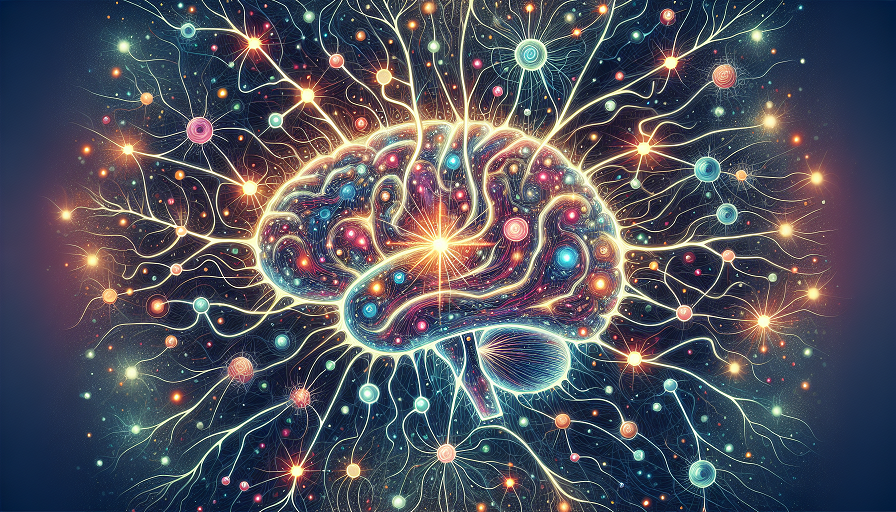
When most people hear the word creatine, they immediately think of muscle growth, gym sessions, and sports performance. But what if we told you that creatine isn’t just for your muscles—it’s also a potential powerhouse for your brain? Creatine plays a crucial role in energy metabolism, and when your brain is operating at peak energy levels, the result is enhanced cognitive function.
Contents
How Creatine Boosts Brain Energy Metabolism
Before diving into creatine’s benefits as a nootropic, it’s important to understand how brain energy metabolism works. Your brain requires a lot of energy to perform even basic tasks, let alone more complex cognitive functions like decision-making and problem-solving. That’s where ATP (adenosine triphosphate) comes in. ATP is the brain’s energy currency, and when your neurons need a quick burst of energy, they rely on creatine to replenish ATP stores.
The Creatine-Phosphate System
Creatine functions through the creatine-phosphate system, which provides a rapid source of energy for cells by replenishing ATP. In the brain, this translates to quicker access to energy for neurons, improving their function during mentally demanding tasks. The faster your brain can produce ATP, the better it can support memory, learning, and overall cognitive processing.
Creatine and Neuroprotection
Beyond energy metabolism, creatine also has neuroprotective properties. Research shows that creatine can help protect brain cells from oxidative stress and inflammation, both of which are common contributors to cognitive decline. By safeguarding neurons, creatine helps maintain optimal brain health and performance over the long term.
Cognitive Benefits of Creatine
While creatine is primarily known for its benefits in physical performance, it’s gaining recognition for its positive impact on cognitive function. Here are some key ways creatine improves brainpower:
Enhanced Short-Term Memory
Studies have shown that creatine supplementation can significantly improve short-term memory. In a 2003 study, participants who took creatine performed better on memory and intelligence tests compared to those who didn’t. This makes creatine particularly useful for tasks that require quick recall of information, such as studying for exams or memorizing presentations.
Improved Mental Fatigue Resistance
Just like your muscles get tired after a workout, your brain experiences mental fatigue after prolonged periods of concentration. Creatine has been shown to reduce mental fatigue, especially in demanding tasks that require sustained cognitive effort. By boosting ATP levels in the brain, creatine helps you stay mentally sharp and focused, even when faced with complex challenges.
Boosting Cognitive Flexibility
Cognitive flexibility refers to your brain’s ability to adapt to new information, switch between tasks, and come up with creative solutions. Creatine’s ability to enhance ATP production makes your neurons more efficient, leading to better cognitive flexibility. Whether you’re multitasking or solving a difficult problem, creatine gives your brain the fuel it needs to stay agile.
Creatine for Different Types of Cognitive Demands
One of the unique aspects of creatine is its versatility—it doesn’t just benefit one area of cognition. Whether you’re tackling mental tasks that require memory, focus, or creative thinking, creatine has something to offer. Here’s how it helps in various areas:
- Memory recall: Creatine enhances your brain’s ability to retain and recall information, making it useful for students, professionals, or anyone who needs a memory boost.
- Focus and attention: When you need to concentrate on a task for extended periods, creatine helps reduce mental fatigue and keeps you on track.
- Creative thinking: Creatine’s support for cognitive flexibility makes it easier to think outside the box and find creative solutions to problems.
Research Supporting Creatine as a Nootropic
Creatine’s role as a nootropic is supported by a growing body of research. Let’s take a look at some key studies that highlight creatine’s cognitive benefits:
Creatine and Cognitive Performance in Vegetarians
A 2003 study found that creatine supplementation significantly improved working memory and intelligence in vegetarians. Because vegetarians typically have lower levels of creatine in their bodies (due to the lack of dietary meat), the effects were particularly noticeable. This study suggests that creatine can have a meaningful impact on cognitive performance, especially in individuals with lower baseline levels.
Reducing Mental Fatigue
Another study conducted in 2011 demonstrated that creatine supplementation reduced mental fatigue during complex mathematical calculations. The participants who took creatine were able to maintain higher levels of focus and perform better under mentally taxing conditions. This highlights creatine’s ability to sustain mental energy during challenging cognitive tasks.
How to Use Creatine as a Nootropic
If you’re ready to give creatine a try as a brain-boosting supplement, here’s how to incorporate it into your routine for cognitive benefits:
- Start with a typical dosage: A standard dosage for creatine is 3 to 5 grams per day. You can take it in powder form mixed with water or add it to a protein shake.
- Stay consistent: Creatine works best when taken consistently over time, as it gradually builds up in your system. Stick with it for several weeks to experience the full cognitive benefits.
- Pair with a healthy lifestyle: Like most nootropics, creatine works even better when combined with regular exercise, a balanced diet, and good sleep habits.
Who Can Benefit from Creatine as a Nootropic?
Creatine’s cognitive benefits make it a great option for a wide range of people, including:
- Students: If you’re studying for exams or need to boost your short-term memory, creatine can help enhance recall and reduce mental fatigue.
- Professionals: Anyone who needs sustained focus and mental energy throughout the workday can benefit from creatine’s ability to improve attention and reduce fatigue.
- Aging adults: As we age, brain energy metabolism declines. Creatine can support cognitive function and protect against age-related cognitive decline.
Potential Side Effects of Creatine
Creatine is considered safe for most people when taken at recommended dosages. However, some individuals may experience minor side effects such as bloating or gastrointestinal discomfort. It’s always a good idea to consult a healthcare provider before starting any new supplement regimen, especially if you have underlying health conditions.

